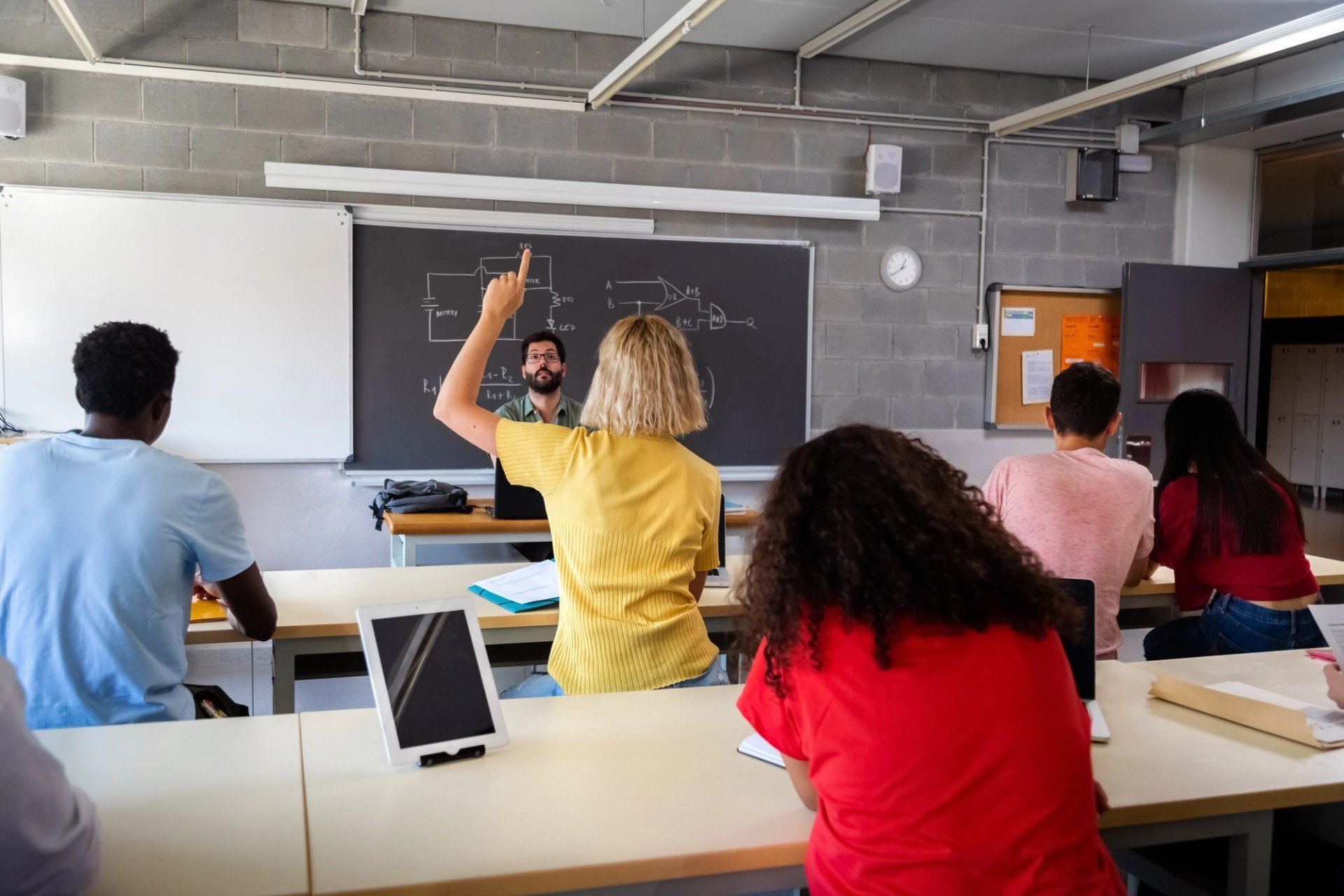Want to Teach Physics? PhysTEC Teachers of the Year Have Advice.
At the 2023 PhysTEC conference, four physics teachers reflected on the rewards and challenges of teaching.

Did you know that fewer than half of new physics teachers in high schools hold a degree in physics? This creates a range of challenges in the classroom, and in 2001, the American Physical Society and the American Association of Physics Teachers (AAPT) launched a partnership to tackle them. Known as PhysTEC, short for the Physics Teacher Education Coalition, the partnership today boasts 364 member institutions across the country, which collectively graduate more than half of all new physics teachers.
Every year, each PhysTEC member institution can nominate one of its graduates to be named a Local Teacher of the Year and considered for the National Teacher of the Year title.
Kicking off this year’s PhysTEC conference in Las Vegas was a moderated panel at which four 2022 PhysTEC Teachers of the Year shared their perspectives on challenges and opportunities facing the profession today. Here are some of their responses.
1. What aspect of your physics teacher program most helped prepare you for teaching?
“The best experience you’re going to get is to be put in front of a class of students,” said Patty Mueller of Westbury Public Schools in New York, nominated by Adelphi University. “No matter what they teach you or what they tell you in a [teacher training] class,” it’s impossible to figure out your own style and methods until you do it yourself, she said. “That’s honestly what made me fall in love with teaching.”
Samantha Spytek, from Rock Ridge High School in Virginia and nominated by Virginia Tech, recalled teaching both middle and high school students and an undergraduate physics course during her master’s program. The experience "gave me the ability to look at what was happening in each level at the same time,” she said. By comparing student preparation levels, pedagogies, and challenges across different programs, she developed good teaching practices faster, Spytek said.
Joe Cossette of Minnetonka High School in Minnesota, nominated by the University of Minnesota, made a unique entry into the teaching profession. With several years of experience as an engineer under his belt, he went back to school to complete a one-year accelerated teaching program for individuals who already had a technical bachelor's degree. "That was a powerful experience,” he said. Cossette said that his physics teaching coursework was energizing — unlike his classes as a high school student. "It really inspired me to make my classroom look more like that, and less like what I experienced when I was in high school,” he said.
2. What challenges do incoming science teachers face that are different from the challenges you encountered when you started?
Jennifer Podel of Northampton High School in Massachusetts, nominated by Smith College, said one of the biggest challenges has been transitioning to standards-based grading, away from the more traditional approach where points are awarded per question or assignment but the concepts being evaluated aren’t explicitly tied to overarching course goals. By contrast, in standards-based grading, students are graded based on their mastery of explicit learning standards. The shift is “an interesting challenge” for teachers, she said, because it requires “boxing our curriculum into chunks” that can be mapped to individual learning standards in a way that many new teachers aren’t trained to do.
In contrast, Cossette said, “when I started teaching, I entered a team that had been doing pretty similar things for the last 10 years,” which meant his team could explore new approaches without feeling overwhelmed. But the COVID-19 pandemic changed that, he said. Each year of teaching during the pandemic varied so greatly that now, when new teachers ask about practices and expectations, the best his team can offer is “a random smorgasbord” of things they’ve done in recent years. Even though a lot of these practices worked well, he knows that kind of response can be “overwhelming” for new teachers, he said.
Mueller added that she’s seen some new teachers struggle to accommodate last-minute changes to their plans, such as a computer system being down. “You’ve got to teach your lesson, no matter what’s thrown your way,” she said. She thinks it’s important for new teachers to have a simple backup plan, like pivoting to a whiteboard and markers to work a few practice problems. Having a plan also reduces stress, she said.
3. What would you say to a person who is interested, but unsure if they want to become a teacher?
Mueller thinks young folks interested in teaching should ask themselves questions deeper than just “do you enjoy working with others?” or “do you enjoy physics?” Instead, they should think about whether they want to put in the effort and creativity to figure out how to teach well, without knowing ahead of time exactly what type of school they’ll work at or students they’ll work with. “Every student is not going to learn the same way,” she said.
Podel added that, as a physics teacher, “you have to know your subject, but you don’t have to be a genius in it.” However, “you do have to know people,” she said. “It’s more important for you to be engaging and inviting … than it is for you to be a content master.”
For those still unsure, Cossette suggested a mental exercise: Imagine what you’d like your life to be like 20 years down the road. When he did that exercise while working as an engineer, he realized he “wanted to have a different sort of interaction and impact” so that he could “work with people and get excited.”
In fact, Cossette said, he loves teaching so much that sometimes, he thinks it seems “crazy” that teaching is a job someone can be paid to do.
Liz Boatman
Liz Boatman is a science writer based in Minnesota.